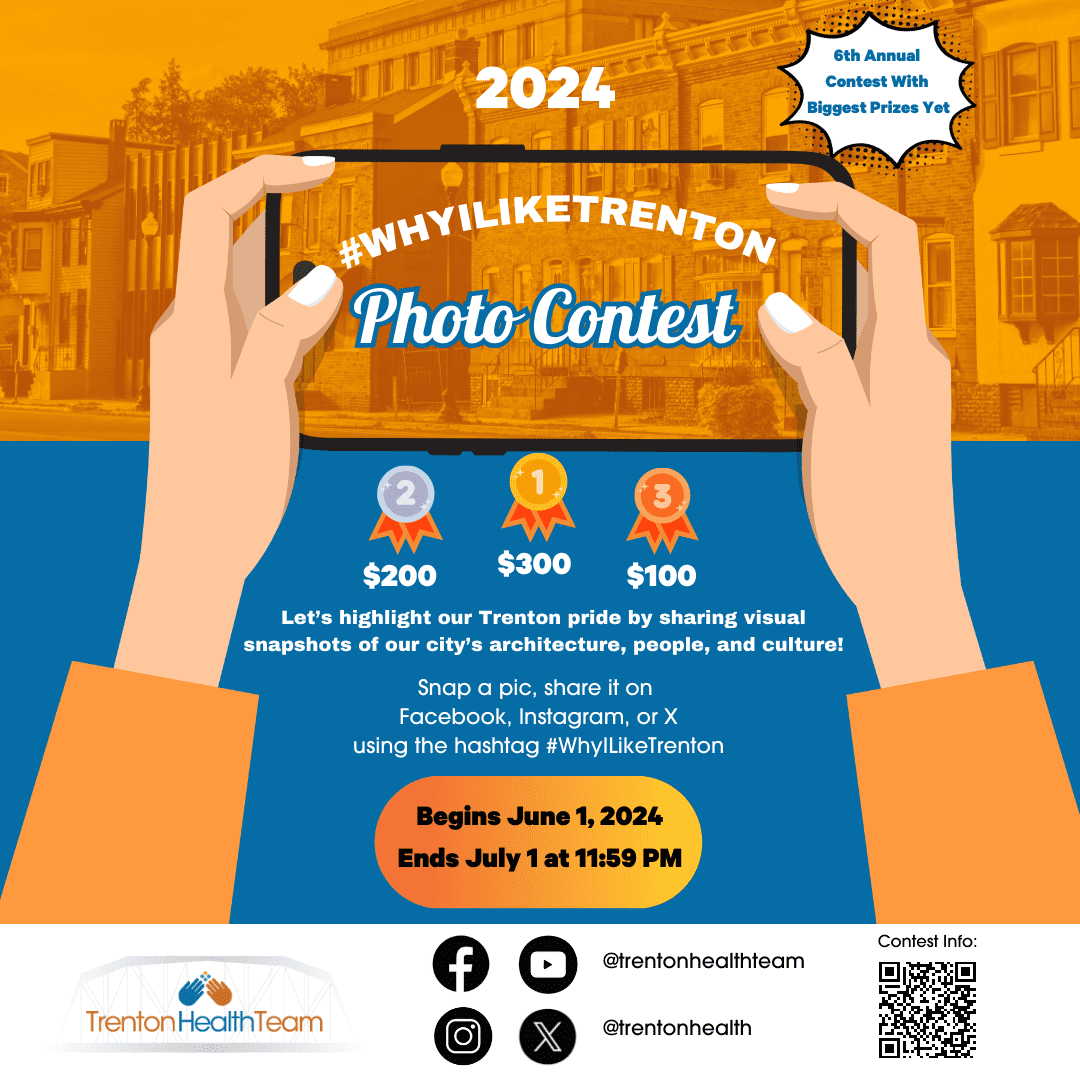City of Trenton Adopts Tobacco 21: Increasing Legal Minimum Age of Tobacco Purchases to 21 Years
On Thursday, February 16, 2017, Trenton City Council voted to raise to 21 the minimum legal age to purchase tobacco and tobacco-related products in the City of Trenton. Passage of the ordinance was supported by a strong collaboration of public and private entities that are committed to improving health outcomes for the Trenton community. Trenton passed the ordinance with a 6 to 1 vote, becoming the 22nd city in New Jersey and the 215th city in the country to adopt it.
Trenton Health Team has been working collaboratively with many partners, including the City Department of Health & Human Services, Capital Health, and St. Francis Medical Center to obtain passage of Tobacco 21. Tobacco 21 is one of six priority areas identified in the Transforming Communities Initiative, a grant program through Trinity Health, the national healthcare system of which St. Francis Medical Center is a member. The five-year, $2.5 million Trinity Health grant was awarded to Trenton Health Team in 2016 to address population health issues through policy, system, and environmental change.
Tobacco 21 was selected as a priority because addressing tobacco use, especially among young people, is vital as it is directly linked to chronic diseases and high healthcare costs. According to Public Health Implications of Raising the Minimum Age of Legal Access to Tobacco Products, published by the Institute of Medicine, “if the were raised now to 21 nationwide, there would be approximately 223,000 fewer premature deaths, 50,000 fewer deaths from lung cancer, and 4.2 million fewer years of life lost for those born between 2000 and 2019.” Also supporting the effort to pass Tobacco 21 were American Cancer Society Cancer Action Network, American Heart Association, American Stroke Association, American Lung Association in New Jersey, Global Advisors on Smokefree Policy (GASP), New Jersey Prevention Network, and Hunterdon Mercer Chronic Disease Coalition, among others.
“Tobacco addiction continues to be a monumental public health concern, particularly among our young people,” said James Brownlee, Director for the Department of Health & Human Services and Health Officer for the City of Trenton. “Preventing youth from smoking early in their life can decrease their chances of becoming lifelong users, and can save them from an early death from smoking.”
A media campaign is being created by the Trenton Health Team, with assistance from The Public Good Projects, to educate the public about T21, its passing, and the consequences.
“This is an important step for the health of the community and I applaud Trenton’s City Council members for supporting the measure,” said Gregory Paulson, Executive Director of Trenton Health Team. “We look forward to the next steps of implementation and education, which will have a powerful, positive impact on Trenton’s young people and their future well-being.”
For a list of Frequently Asked Questions about Tobacco 21, click here.
About the Trenton Health Team
Trenton Health Team (THT) is an alliance of the city’s major providers of healthcare services including Capital Health, St. Francis Medical Center, Henry J. Austin Health Center and the city’s Health Department. In collaboration with residents and the city’s active social services network, THT is developing an integrated healthcare delivery system to transform the city’s fragmented primary care system and restore health to the city. THT receives generous support from government agencies and foundations, including The Nicholson Foundation and the Robert Wood Johnson Foundation, and corporate partners such as Novo Nordisk, Inc. and Janssen Pharmaceuticals. For more information, visit www.trentonhealthteam.org.
About Tobacco 21
Tobacco 21 (T21) is a preventive effort established in 1996 by the Prevention Tobacco Addiction Foundation to reduce the impact of tobacco and nicotine addiction by decreasing the number of people who begin smoking before age 18, lowering the risk of them developing addiction and becoming a lifelong smoker. T21 employs media campaigns, education, and legislation to help cities and states adopt the initiative. For more information, visit www.tobacco21.org.
About Trinity Health
Trinity Health is one of the largest multi-institutional Catholic health care delivery systems in the nation. It serves people and communities in 21 states with 90 hospitals, 124 continuing care locations — including home care, hospice, PACE and senior living facilities — that provide nearly 2.5 million visits annually. Based in Livonia, Mich., and with annual operating revenues of $15.8 billion and assets of $20.4 billion, the organization returns about $1 billion to its communities annually in the form of charity care and other community benefit programs. Trinity Health employs about 95,000 full-time employees, including 3,900 employed physicians. Committed to those who are poor and underserved in its communities, Trinity Health is known for its focus on the country’s aging population. As a single, unified ministry, the organization is the innovator of Senior Emergency Departments, the largest not-for-profit provider of home health care services — ranked by number of visits — in the nation, as well as the nation’s leading provider of PACE (Program of All Inclusive Care for the Elderly) based on the number of available programs. For more information, visit www.trinity-health.org. You can also follow @TrinityHealthMI on Twitter.










